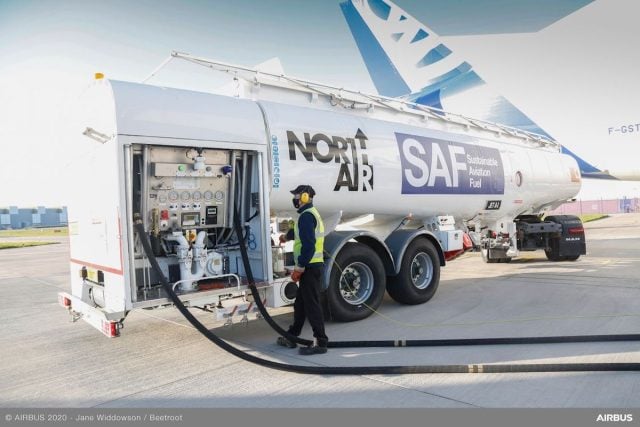67 Airlines Announce SAF Purchase Agreements by June 2024 – IATA
88 SAF agreements, with 65 binding, and 140 facilities in development

The International Air Transport Association (IATA)’s Quarterly Air Transport Chartbook – Q2 2024 reports a notable rise in Sustainable Aviation Fuel (SAF) commitments.
Over the past two years, the aviation industry has signed 88 SAF offtake agreements, with 65 being binding purchase agreements.
As of June 2024, 67 airlines worldwide had publicly announced their SAF commitments.
Bio-SAFs Dominate Agreements
According to IATA, the majority of these agreements (75) are based on bio-SAFs, primarily Hydro-processed Esters and Fatty Acids (HEFA) and HEFA Co-Processing.
E-fuel SAFs from Power-to-Liquid (PtL) projects account for the remaining 13 agreements.
Challenges for SAF Production Facilities
Globally, around 140 SAF production facilities are in development across 31 countries, with a combined renewable fuel capacity of 51 million tonnes by 2030.
However, progress on these projects has been hindered by factors such as limited feedstock availability, financing challenges, and unfavourable project economics.
IATA notes that SAF is crucial for decarbonising the aviation industry. The production pathway and product mix at refineries will determine the proportion of global renewable energy production dedicated to SAF.
Incentivise SAF Production, SAF Pathways
While technologies can adapt product slates, this often comes at the expense of overall yields. Governments should incentivise SAF production over renewable diesel and promote diversified feedstock and technologies to maximize SAF output.
IATA forecasts that over 85% of global renewable fuel capacity by 2030 will be based on the HEFA pathway, compared to the current 78%.
Scaling up demo facilities across various technologies, particularly in the EU, is essential for diversifying SAF pathways and achieving commercial viability.
